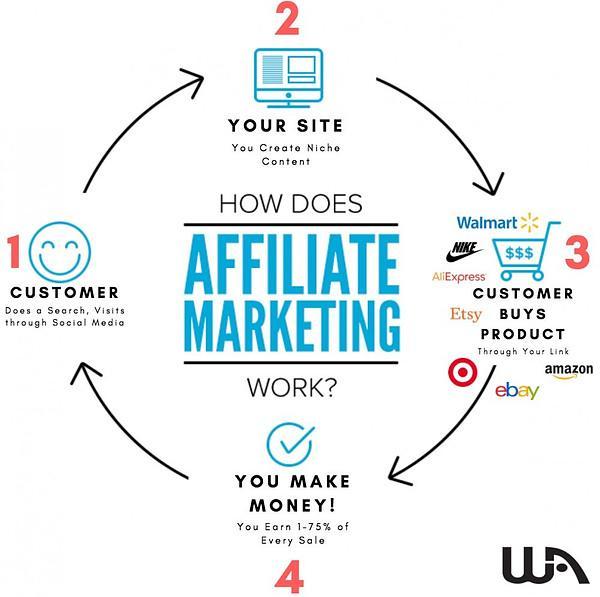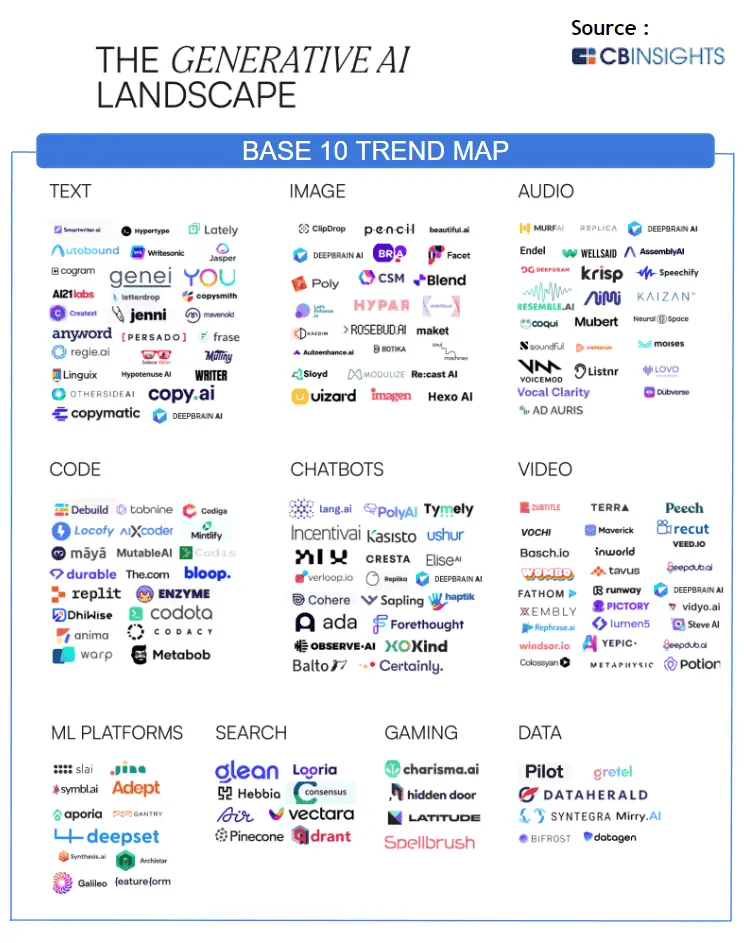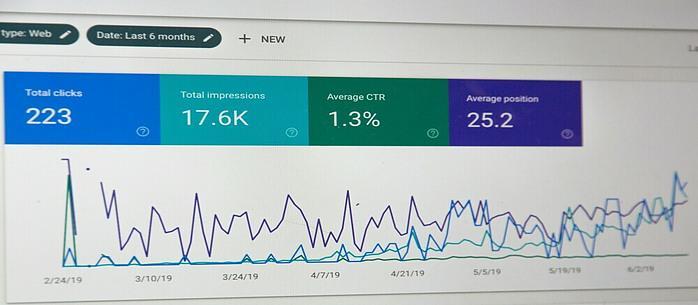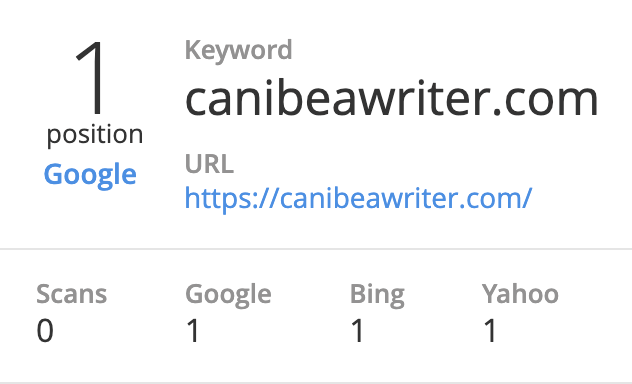Get ready to dive into the ever-evolving and potentially lucrative world of affiliate marketing. Whether you’re a seasoned pro or a total beginner, understanding the ins and outs of affiliate marketing opens up a world of opportunities.
This exciting guide will explain the fundamentals, strategies, and benefits of affiliate marketing, equipping you to navigate and thrive in this dynamic landscape. With the potential for significant growth and success, affiliate marketing can inspire and motivate you to achieve your goals.
Introduction to Affiliate Marketing
Affiliate marketing is a performance-based marketing approach in which a business provides incentives to partners (affiliates) to generate traffic or sales through their marketing activities. This arrangement benefits both the business, which gains increased visibility and sales, and the Affiliate, who receives a commission for their marketing efforts.

Key Players in the Affiliate Marketing Ecosystem
1. Merchants (Advertisers): Merchants are businesses or individuals who sell products or services. They are the driving force behind affiliate programs and are responsible for setting commission structures and providing promotional materials to affiliates. Merchants rely on affiliates to promote their offerings and drive sales.
2. Affiliates (Publishers): Affiliates can be individuals or companies that partner with merchants to promote and sell their products or services. They earn a commission for each sale, lead, or action generated through their marketing efforts. Affiliates utilize a variety of marketing tactics, such as content marketing, search engine optimization, email marketing, and social media promotion, to drive traffic and conversions for the merchants.
3. Consumers: Consumers play a pivotal role in the affiliate marketing ecosystem as they are the end-users who purchase the products or services the affiliates promote. They are influenced by affiliates’ marketing efforts and make purchasing decisions that contribute to the success of the affiliate marketing model.
4. Affiliate Networks: Affiliate networks serve as intermediaries between merchants and affiliates, offering a platform where merchants can list their affiliate programs and where affiliates can discover and join these programs. They provide tracking and reporting tools to monitor affiliate performance, facilitate payments, and support merchants and affiliates. Additionally, affiliate networks help streamline the management of merchant affiliate programs and provide opportunities for affiliates to access various offers from different merchants.
How Affiliate Marketing Works
Affiliate marketing is a performance-based marketing strategy in which affiliates promote a merchant’s products or services in exchange for a commission on sales. Here’s a detailed breakdown of how affiliate marketing works:
1. Join an Affiliate Program: Affiliates can sign up for an affiliate program directly through a merchant’s website or an affiliate network, which acts as an intermediary between affiliates and multiple merchants.
2. Promote Products or Services: Once approved, affiliates receive unique tracking links. These links, often referred to as affiliate links, are personalized for each Affiliate and are used to track the traffic and sales generated through their marketing efforts. When a potential customer clicks on your affiliate link, a small file called a cookie is stored on their device.
This cookie contains your unique affiliate ID, which allows the merchant to track which Affiliate referred the customer. Along with these links, affiliates also receive promotional materials such as banners, text links, or product images to market the merchant’s products or services effectively.
3. Drive Traffic: Affiliates utilize various marketing channels, including but not limited to blogs, social media platforms, email marketing, search engine optimization (SEO), and paid advertising, to drive traffic to the merchant’s website. The goal is to attract potential customers and encourage them to purchase through the Affiliate’s unique tracking link.
4. Earn Commissions: When visitors click on the Affiliate’s tracking link and purchase on the merchant’s website, the Affiliate earns a commission on the sale. The commission structure can vary and may be based on a percentage of the sale amount, a flat fee per sale, or other arrangements agreed upon between the Affiliate and the merchant.
By following these steps and actively promoting products or services, affiliates have the potential to earn a consistent stream of income through affiliate marketing.

Benefits of Affiliate Marketing
Affiliate Marketing offers several benefits to merchants.
1. Cost-Effective Marketing: Merchants only pay for actual sales or leads generated through the Affiliate’s efforts, making it a highly cost-effective marketing strategy. This payment structure ensures merchants only spend money when they see tangible results, reducing the risk associated with traditional advertising.
2. Extended Reach: Affiliates act as brand ambassadors, helping expand the merchant’s reach by promoting products to their established audience. This increases brand visibility and exposure to potential customers who may not have been reached through traditional marketing channels.
3. Performance-Based: The performance-based affiliate marketing model ensures that marketing efforts are highly targeted and effective. Affiliates are motivated to drive conversions since their compensation is directly tied to the sales or leads they generate. This results in a focused and results-driven approach to marketing, leading to a higher return on investment for merchants.

For Affiliates
Affiliate marketing offers individuals an opportunity to earn passive income once they have established their marketing channels. This means that affiliates can continue to earn money even while they are not actively working. Additionally, getting started in affiliate marketing requires minimal investment, as affiliates can leverage their existing platforms and resources to promote products. This low start-up cost provides a reassuring and confident entry into the field, giving you the peace of mind to start your journey with ease.
Moreover, affiliate marketing provides unparalleled flexibility and autonomy. Affiliates have the freedom to select the products they wish to promote and the ability to work from any location, providing them with a more adaptable and convenient work-life balance. This level of control and freedom can empower you to manage your work in a way that suits your lifestyle.
Where to Source Testimonials
- Wealthy Affiliate’s Website/Blog: There are likely success stories showcased here.
- Trustpilot: See what genuine users are saying: https://www.trustpilot.com/review/wealthyaffiliate.com
- Social Media: Search for relevant hashtags on Twitter, Facebook groups, etc. Reach out directly to users expressing praise for the program.
Getting Started with Affiliate Marketing
Choosing a Niche
Choosing the right niche is absolutely crucial for success in affiliate marketing. Your niche is the specific segment of the market that you will focus on. It is imperative to select a niche that you are genuinely passionate about, and that has a proven demand.
Consider top-performing niches such as health and wellness, personal finance, technology, and travel. For instance, if you’re passionate about fitness, you might choose a niche within health and wellness, such as weight loss or muscle building. If you’re a tech enthusiast, you might focus on a niche within technology, such as smartphone accessories or smart home devices.

Factors to Consider When Choosing a Niche
1. Interest and Passion: Selecting a niche that aligns with your interests and passions is crucial. Doing so will not only make creating content more enjoyable but also help you maintain long-term motivation and commitment.
2. Market Demand: Before finalizing your niche, it’s important to research the demand for the products or content in that area. Google Trends and keyword research tools are valuable resources for understanding the level of interest and demand for your chosen niche.
3. Competition: Thoroughly analyze the competition in your chosen niche. Understanding the level of competition can help assess the niche’s potential profitability. Still, it’s important to remember that high competition might require more effort to establish your presence and stand out.
Finding Affiliate Programs
After selecting a specific market to focus on, the next important task is to locate appropriate affiliate programs. These programs generally fall into two categories: those provided directly by merchants and those accessible through affiliate networks.
Direct Affiliate Programs
Many companies offer direct affiliate programs. They can be a great way to monetize your website or social media presence. If you’re looking to find these programs, here are a couple of ways you can do so:
1. Visit the Merchant’s Website: Navigate to the company’s website and look for an “Affiliate Program” or “Partners” link in the footer or menu. These links often provide information on how to join the affiliate program and its benefits.
2. Contact the Merchant: If you are still waiting for information about an affiliate program on the company’s website, consider contacting them directly. You can contact the company through their website, email, or phone to inquire about their affiliate program. This direct communication can help you get detailed information about commission rates, cookie duration, and any promotional materials they provide for affiliates.
Affiliate Networks
Affiliate networks connect publishers (affiliates) with merchants with products or services to sell. These networks provide access to a wide range of affiliate programs, making it easier for publishers to find suitable products to promote.
Here are some popular affiliate networks:
1. Amazon Associates: Amazon’s affiliate program is one of the most well-known and offers various products across numerous categories. Publishers can earn commissions by promoting these products through their websites, blogs, or social media channels.
2. ShareASale: ShareASale is a reputable affiliate network with merchants across various niches. Publishers can find products to promote that align with their audience’s interests and earn commissions for driving sales.
3. CJ Affiliate (formerly Commission Junction): CJ Affiliate is known for its extensive selection of merchants and robust tracking and reporting tools to monitor publishers’ performance. This network offers a wide range of products and services to promote, making it suitable for publishers with diverse audiences.
4. Rakuten Marketing: Rakuten Marketing is another prominent affiliate network that connects publishers with a diverse range of merchants. The network makes it easier for publishers to find relevant products to promote and provides access to various tools and resources to help publishers maximize their earnings.
These affiliate networks offer publishers the Opportunity to monetize their online content by promoting products and earning commissions for driving sales and leads.

Creating a Marketing Plan
A well-crafted marketing plan is pivotal for achieving success in affiliate marketing. This plan must comprehensively outline your goals, target audience, marketing strategies, and performance metrics.
Setting Goals
In order to set practical goals, it’s essential to consider both short-term and long-term objectives.
Short-Term Goals
These smaller, more immediate targets can help you get started and build momentum. Examples of short-term goals for affiliate marketing include:
- Joining a specific number of affiliate programs.
- Creating a certain amount of content.
- Generating your first sale.
These goals are essential for establishing a foundation and gaining early wins.
Long-Term Goals
Long-term goals are those that you aspire to achieve over a more extended period of time. These goals might include earning a certain amount of passive income per month, reaching a specific number of website visitors or email subscribers, or becoming a top affiliate within your niche. Long-term goals provide direction and purpose for your ongoing efforts and help you stay focused on the bigger picture.

Identifying Your Target Audience
Identifying your target audience is a critical component of successful marketing. You should create a comprehensive profile of your ideal customer, which should encompass demographic information such as age, gender, location, and income level.
Additionally, it’s essential to understand their interests, preferences, and any challenges or problems they may face. This detailed understanding will enable you to tailor your marketing strategies and messages to reach and engage your target audience.

Choosing Marketing Channels
When selecting the proper marketing channels, one of the most critical aspects is accurately defining and understanding your target audience. This involves creating a comprehensive profile of your ideal customer, which includes not only basic demographic details such as age, gender, location, and income level but also delves deeper into their interests, hobbies, preferences, and any specific challenges they might be facing. This detailed understanding enables businesses to tailor their marketing strategies in a way that truly resonates with their target audience, increasing the likelihood of success.

Tracking Performance
You must leverage tools such as Google Analytics and affiliate network dashboards to monitor your performance as an affiliate marketer. These tools provide valuable insights into key metrics that can help you assess the effectiveness of your affiliate marketing efforts. Some of the critical metrics to monitor include:
1. Click-Through Rate (CTR): This metric represents the percentage of individuals who click on your affiliate links after viewing them. A higher CTR indicates that your audience engages with your content and the affiliate links you promote.
2. Conversion Rate: The conversion rate measures the percentage of clicks on your affiliate links that result in successful sales or lead generation. A high conversion rate indicates that your audience is not only clicking on the links but also taking the desired action, whether making a purchase or signing up for a service.
3. Average Order Value (AOV): The AOV reveals the average amount customers spend through your affiliate links. Monitoring the AOV can help you understand your audience’s purchasing behavior and identify opportunities to increase the value of each sale.
By tracking these key metrics, you can gain valuable insights into the performance of your affiliate marketing activities and make informed decisions to optimize your strategies.

Advanced Strategies for Success
Content Marketing
Remember that content is king in affiliate marketing. High-quality, informative, and engaging content can drive traffic and conversions.
Types of Content
1. Product Reviews: In-depth product reviews offer a comprehensive analysis of various features, benefits, and drawbacks, enabling consumers to make well-informed purchasing decisions based on real experiences.
2. Tutorials and How-To Guides: These content pieces are valuable resources that provide step-by-step instructions, practical tips, and demonstrations on using products or solving specific problems. Additionally, they can include affiliate links to relevant products, allowing readers to make purchases based on the guidance provided conveniently.
3. Listicles: Articles that compile a list of the best products in a specific category serve as convenient resources for readers seeking recommendations. Listicles can highlight top-rated products, compare their features, and provide insightful commentary to assist consumers in decision-making.
4. Comparison Posts: These articles involve thorough comparisons of similar products, outlining their respective strengths, weaknesses, and unique attributes. By presenting a detailed analysis, comparison posts empower readers to select the most suitable option based on their specific needs and preferences, potentially leading to increased affiliate sales.

SEO Optimization
Search Engine Optimization (SEO) is an essential digital marketing strategy to boost the visibility and ranking of web content on search engine results pages. By strategically implementing the following key SEO strategies, you can drive organic traffic and improve the online presence of your content:
1. Comprehensive Keyword Research: Start by identifying a wide range of relevant keywords and phrases your target audience will likely use when searching for content related to your industry, products, or services. Utilize keyword research tools to find high-volume and low-competition keywords to optimize your content effectively.
2. On-Page SEO Optimization: Once you have identified your target keywords, incorporate them naturally into your content, including headings, subheadings, meta descriptions, title tags, and image alt tags. Additionally, ensure your content provides valuable information that satisfies user intent and is structured for easy readability and accessibility.
3. Quality Backlink Building: Establishing a solid network of high-quality backlinks from reputable and relevant websites is vital for improving your site’s authority and search engine ranking. Focus on earning backlinks from trustworthy sources through guest blogging, content partnerships, and creating valuable, shareable content that naturally attracts inbound links.
Implementing these detailed SEO strategies will contribute to the overall success of your digital marketing efforts by driving qualified organic traffic to your website and enhancing your online visibility.

Leveraging Social Proof
You can enhance your marketing efforts by leveraging social proof. Social proof, including testimonials and reviews, is crucial in influencing purchasing decisions. Here are two key strategies to incorporate social proof into your marketing tactics:
1. Customer Testimonials: Integrate testimonials from satisfied customers into your marketing materials to build trust and credibility. Displaying real-life experiences and positive customer feedback can significantly impact potential buyers.
2. User-Generated Content: Encourage customers to share their experiences with your products on social media platforms. User-generated content, such as photos, videos, and posts from satisfied customers, can serve as authentic endorsements and help showcase your product’s value and benefits to a broader audience.

Maximizing Paid Advertising Opportunities
In addition to organic traffic, implementing paid advertising strategies can substantially enhance your overall reach and conversions.
1. Google Ads: Google Ads offers many targeted advertising options to drive traffic to your affiliate content. You can leverage keyword targeting, location targeting, and audience targeting to maximize the effectiveness of your ads.
2. Social Media Ads: Platforms like Facebook and Instagram provide robust tools for creating and targeting ads. By narrowing down your audience based on demographics, interests, and behaviors, you can effectively reach your ideal audience and improve your conversion rates.

Challenges and How to Overcome Them
One of the primary challenges that marketers often face in the world of affiliate marketing is the high level of competition, particularly within popular niches. To effectively overcome this, creating unique and valuable content that truly stands out is important.
Building a solid and recognizable brand identity is also crucial, as it can help differentiate you from your competitors. Additionally, leveraging multiple marketing channels can give you a broader reach and help you connect with diverse audiences.
Another significant challenge in affiliate marketing is the ever-changing algorithms of search engines and social media platforms. These changes can have a direct impact on your website traffic and visibility.
To address this challenge, it’s essential to stay well-informed about algorithm updates and be prepared to adapt your marketing strategies to align with these changes. Keeping a close eye on industry trends and best practices will help you maintain a competitive edge.
Building trust with your audience is another critical aspect of affiliate marketing. Establishing credibility and trust is fundamental to the success of any affiliate marketer. Transparency is essential to this process, so it’s important to be honest and open about your affiliate relationships. Providing authentic and unbiased product reviews and focusing on genuinely helping your audience make informed choices can go a long way in building a loyal and trusting following.

The Future of Affiliate Marketing
The landscape of affiliate marketing is evolving rapidly, driven by technological advancements and shifts in consumer behavior. It’s important to keep an eye on several key trends:
1. Influencer Marketing: In today’s digital age, influencers with dedicated and engaged followings have the ability to drive significant traffic and conversions for affiliate marketing campaigns. Their unique ability to connect with their audience personally makes them a powerful marketing force.
2. Mobile Commerce: With the increasing prevalence of mobile devices in consumers’ daily lives, optimizing for mobile has become essential for affiliate marketers. Ensuring that mobile-friendly campaigns and websites are crucial to reaching and engaging with consumers on the go.
3. AI and Automation: Integrating artificial intelligence and automation in affiliate marketing has opened up new opportunities for affiliates to analyze data, optimize campaigns, and improve targeting.
AI-powered tools can provide valuable insights into consumer behavior and preferences, allowing marketers to tailor their strategies for maximum impact. By leveraging automation, affiliates can streamline repetitive tasks, allowing them to focus more on strategy and creative initiatives.

Dynamic Opportunity
Affiliate marketing offers a dynamic and rewarding opportunity for those willing to put in the effort. By understanding the fundamentals, choosing the right niche, creating valuable content, and leveraging various marketing strategies, you can build a successful affiliate marketing business. Stay adaptable, keep learning, and enjoy the journey as you discover the exciting world of affiliate marketing.
Wealthy Affiliate: The Best Platform for Affiliate Marketing Beginners
Are you looking for a way to make money online? You may have considered promoting products or services but aren’t sure where to start. With affiliate marketing, the possibilities are endless. This guide will introduce you to affiliate marketing and how the Wealthy Affiliate Platform can help you succeed.
What is Affiliate Marketing?
Affiliate marketing is a method of earning money online by promoting other people’s products or services. As an affiliate marketer, you create content around a product or service, generating leads and driving sales. In return, you earn a commission for every sale made through your referral.
Why Choose Affiliate Marketing?
– Low Start-Up Costs: No need to create your products.
– Flexibility: Work from anywhere, anytime.
– Variety: Promote a wide range of products or services.
Exploring the Wealthy Affiliate Platform
The Wealthy Affiliate Platform is a comprehensive online training course designed to teach you how to make money through affiliate marketing. Whether you are a beginner or have some experience, this platform offers valuable resources and support to help you succeed.
How Does It Work?
Wealthy Affiliate is like a 24/7 virtual classroom. It offers step-by-step lessons on building and growing an online business. Here’s what you can expect:
1. Comprehensive Training: Practical business lessons that are easy to follow.
2. Tools and Resources: Access keyword research tools, website builders, and more.
3. Supportive Community: Connect with other members, get advice, and stay motivated.
Success Stories
Since 2006, Wealthy Affiliate has helped thousands of people worldwide build successful online businesses. Here’s how it works:
1. Sign Up for a Free Account: Start learning and promoting products immediately.
2. Follow the Training Modules: Step-by-step instructions to set up your website and start marketing.
3. Leverage the Community: Get support from experienced marketers and learn from their successes.
Why Wealthy Affiliate Stands Out
– User-Friendly Interface: Easy to navigate and use.
– Proven Track Record: Established platform with a history of success.
– Continuous Updates: Regularly updated content to keep you ahead of the curve.
My Personal Experience
I joined Wealthy Affiliate in October 2016 and have launched two successful websites since then. The training modules are easy to follow, and the community support is incredible. The tools provided have helped me stay motivated and grow my business.
Where to Source Testimonials
- Wealthy Affiliate’s Website/Blog: There are likely success stories showcased here.
- Trustpilot: See what genuine users are saying: https://www.trustpilot.com/review/wealthyaffiliate.com
- Social Media: Search for relevant hashtags on Twitter, Facebook groups, etc. Reach out directly to users expressing praise for the program.

Start Your Affiliate Marketing Journey Today
The Wealthy Affiliate Platform offers a unique opportunity to learn and earn through affiliate marketing. Its comprehensive training, supportive community, and proven success make it the perfect place to start your online business journey.
Ready to make money from home? Sign up for Wealthy Affiliate today and start your path to financial freedom!
—
Start now and join a community of successful online entrepreneurs. Click [here](https://www.wealthyaffiliate.com) to learn more about the Wealthy Affiliate Platform and take the first step towards your affiliate marketing success!
Pure Opportunity,
Martin





